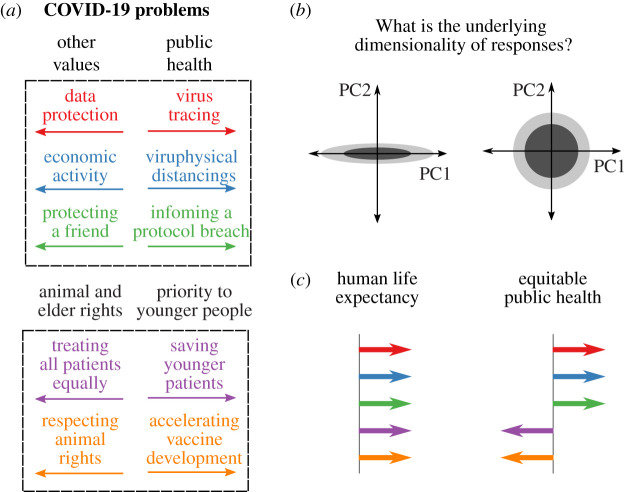Figure 1.
Moral problems about the COVID-19 pandemic and theoretical predictions. (a) We designed five moral scenarios that relate to problems of the COVID-19 outbreak (see Methods for full descriptions of each scenario). The first three pose a tension between prioritizing public health or other values and aspects of wellbeing. The last two ask if it is acceptable to prioritize younger human lives at the cost of breaking elder and animal rights. (b) What is the underlying structure of moral responses to these scenarios? In principle, if responses to all scenarios were highly correlated with each other, then they could be organized in one dimension. However, according to bi-dimensional theories of utilitarian decision-making, moral responses should be better explained by two components, each one correlating with a different dimension of utilitarianism (i.e. instrumental harm and impartial beneficence). (c) Dilemmas were conceived to examine two distinct focuses on public health. The first is a concern about maximizing human life expectancy whereby individuals prioritizing public health over other aspects of wellbeing also prioritize younger human lives over older and animal lives (left panel). The second hypothesis is a focus on equitable public health where prioritization of public health is compatible with respecting elder and animal rights (right panel).

